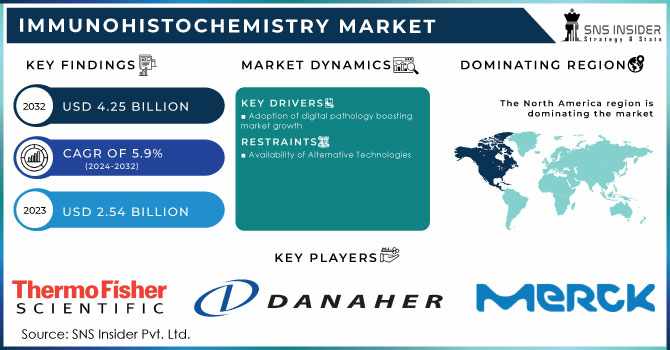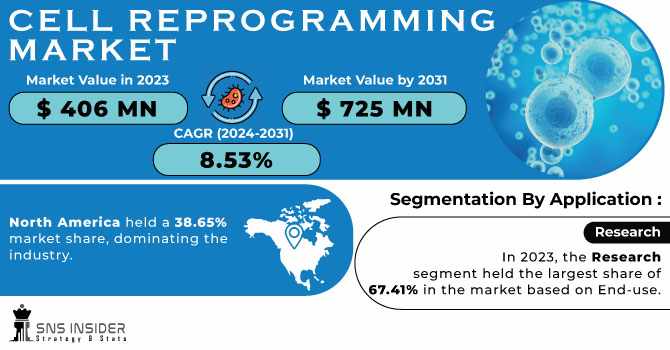
The global immunohistochemistry market is experiencing significant growth, primarily driven by advancements in diagnostic techniques, increased prevalence of chronic diseases, and growing demand for personalized medicine. Immunohistochemistry (IHC) plays a pivotal role in diagnosing various diseases, including cancer, infectious diseases, and neurological disorders, by utilizing antibodies to identify specific tissue antigens. As the medical community continues to focus on precision diagnostics and targeted therapies, the market for IHC is expected to witness sustained growth in the coming years.
Get Free Sample Report @ https://www.snsinsider.com/sample-request/3760
Market Segmentation
The immunohistochemistry market is segmented based on product type, application, end-user, and region.
By Product Type:
Reagents
Equipment
Antibodies
Kits
By Application:
Cancer Diagnostics
Infectious Diseases
Neurological Disorders
Cardiovascular Diseases
Others
By End-User:
Hospitals and Diagnostic Laboratories
Research Institutes
Pharmaceutical Companies
Regional Analysis
The immunohistochemistry market is analyzed across key regions including North America, Europe, Asia Pacific, Latin America, and the Middle East & Africa. North America dominates the market due to the high adoption of advanced technologies in diagnostics, significant healthcare spending, and a strong presence of leading IHC manufacturers. Europe holds a prominent position as well, attributed to the growing focus on personalized healthcare and cancer diagnostics. The Asia Pacific region is anticipated to witness the fastest growth, driven by improving healthcare infrastructure, increasing awareness, and rising investments in the healthcare sector.
Key Players
The major players are Thermo Fisher Scientific Inc., F. Hoffmann-La Roche Ltd., Merck KGaA, Danaher Corporation, Perkinelmer, Inc., Bio-Rad Laboratories, Inc., Cell Signaling Technology, Inc., Bio SB, Agilent Technologies, Inc., Abcam plc., and Others Plyers
Key Points
Strong growth in the demand for cancer diagnostics is a key driver for the market.
Technological advancements in IHC techniques are enhancing diagnostic accuracy.
The rise of personalized medicine and targeted therapies is fostering market expansion.
Growing research activities in the field of molecular biology are contributing to the market's growth.
Regional markets, particularly in North America and Europe, are seeing rapid adoption of IHC-based technologies.
Emerging markets in Asia-Pacific are expected to witness substantial growth.
Future Scope
The future of the immunohistochemistry market looks promising, with several factors contributing to its expansion. The continuous development of new IHC-based biomarkers, combined with advances in companion diagnostics, is expected to improve disease management and therapeutic outcomes. Additionally, the growing focus on immunotherapy, which relies on precise identification of biomarkers, will likely enhance the adoption of IHC in clinical settings. As healthcare systems worldwide place increasing emphasis on early diagnosis and personalized treatment, the immunohistochemistry market is poised for continued growth, providing opportunities for innovation and new product developments.
Conclusion
In conclusion, the immunohistochemistry market is positioned for substantial growth due to the rising demand for diagnostic accuracy and personalized medicine. The increasing prevalence of chronic diseases, technological innovations, and the broad applications of IHC in clinical and research settings are key factors driving this market. As the global healthcare landscape continues to evolve, immunohistochemistry will remain a crucial tool in disease diagnosis and treatment, paving the way for new opportunities and developments in the coming years.
Contact Us:
Jagney Dave - Vice President of Client Engagement
Phone: +1-315 636 4242 (US) | +44- 20 3290 5010 (UK)
Other Related Reports:





















Write a comment ...